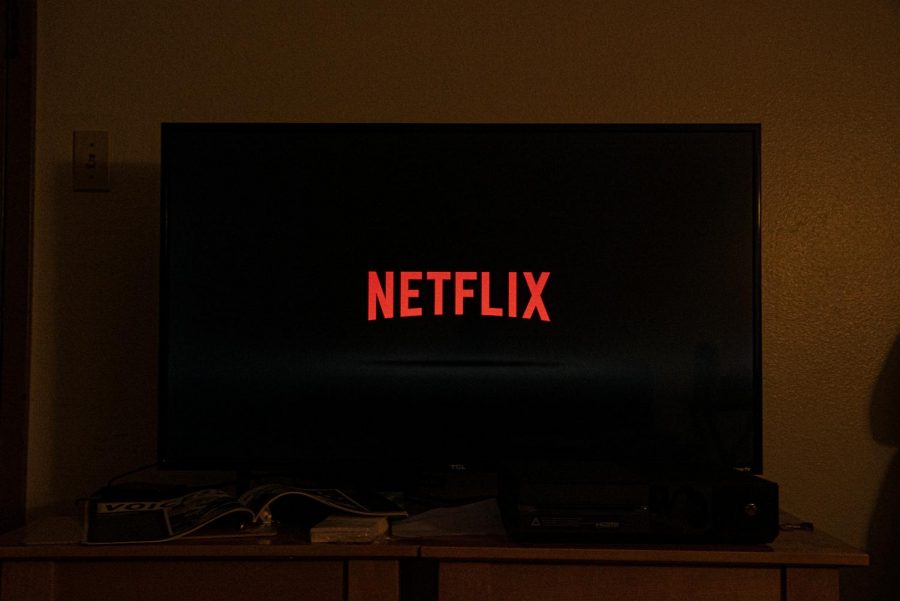Opinion | Don’t judge sources from their clips
#CancelNetflix sprung up due to clips taken from the recent ‘Cuties’ film, but this hashtag movement fails to understand the purpose of the film’s creation.
Photo illustration by Tate Hildyard
September 23, 2020
On Sept. 9, a tweet caught tons of attention from the public, published by @MaryMargOlohan. The tweet is a clip from the movie “Cuties,” depicting an underaged twerk crew, generating enough outrage to spark #CancelNetflix. While the scene itself is grotesque, that is a point the critics fail to understand. While there are numerous points to criticize in the film, by clipping it out of context, critics fall into an unfortunately common modern way of thinking — clipping and shipping.
Cuties was made to be a critique of the modern ways in which children are sexualized. The director, Maïmouna Doucouré, said in an interview with Zora, a medium publication for women of color, that it was meant to be an explicit condemnation of hypersexualization. The discomfort and disgust people feel when watching scenes from the film is intentional – it’s meant to disturb the audience and make them understand this isn’t just a fictional dance, but a depiction of what exists out in the world.
But this wave of #CancelNetflix misses that. Their concern is not that these depictions are accurate reflections of real life – their only concern is the depictions in the film itself. They think that Netflix is a left-wing media company that is attempting to normalize pedophilia.
Unfortunately, this isn’t anything new to online discourse.
Confirmation bias is a tendency to interpret certain things in accordance with their prioritized belief and past memory.
Human beings are lazy in mental processing, and that’s why we have two models of mental systems to process information—system 1 and system 2.
System 1 helps intuitive response and reaction which processes information automatically without much mental energy.
System 2 helps conscious judgement which requires logical and effortful processing.
Because humans only possess limited mental energy, usually system 1 takes the responsibility of interpreting our current situation. With social media, we’ll oftentimes take our first gut response and respond immediately. After all, what’s more authentic than your first take?
But that’s not how good discourse is made. This initial, knee-jerk reaction doesn’t get down to the deeper level of what’s being discussed here. By shutting discussions down and just blanketly stating “this is bad, all depictions of this are bad,” that stifles the capacity to bring awareness to these issues.
There are already depictions of sexual assault, rape, murder, and more in mass media – why aren’t those given as much attention as Cuties?
This is not to say that Cuties is free from criticism because of its intentions. The end result of the film’s creation is still more than capable of producing harm. There are ways to irresponsibly depict acts that occur in real life.
This phenomenon of taking things out of context isn’t just for films though. It happens all the time in politics, with single off-hand statements or photos being taken out of context for attack ads that levy charges that have no merit to stand on.
Without ever searching for context or background on claims, people will make accusations and come to conclusions on their own.
If we want to have social media be a place for discussion and intellectual engagement, we need to stop attacking samples of fragments taken out of context regardless of the source. It doesn’t help anyone to attack a position that doesn’t exist, which is what is frankly, happening more than ever this election cycle.
Stop taking things out of context. Learn about the topic before commenting on it and think before sending your next post.
Columns reflect the opinions of the authors and are not necessarily those of the Editorial Board, The Daily Iowan, or other organizations in which the author may be involved.
















